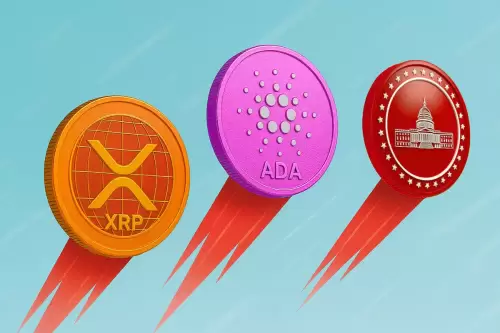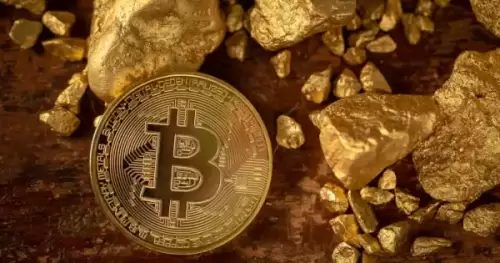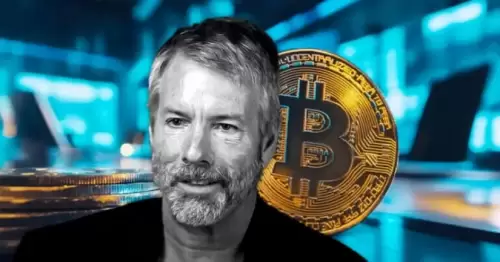 |
|
 |
|
 |
|
 |
|
 |
|
 |
|
 |
|
 |
|
 |
|
 |
|
 |
|
 |
|
 |
|
 |
|
 |
|
Cryptocurrency News Articles
WASHINGTON -- The U.S. Treasury Department says it will phase out production of new pennies early next year
May 23, 2025 at 10:00 am
The Treasury Department said in a statement that the U.S. Mint, which it oversees, will stop producing new pennies once it runs out of blank templates

The U.S. Treasury Department says it will phase out production of new pennies early next year after President Donald Trump asked the agency to stop making the coin that has been part of the American currency for more than 230 years.
The Treasury Department said in a statement that the U.S. Mint, which it oversees, will stop making new pennies once it runs out of blank templates used to make the mostly copper and zinc coins. The agency confirmed that it made its final order of penny blanks this month.
The retirement of the penny, which was first reported by the Wall Street Journal, is expected to save the Treasury Department around $56 million annually in reduced material costs, according to the department's statement.
"Additional savings will accrue as facility usage is adjusted and other efficiencies are achieved with the reduced production," the Treasury Department said.
The agency announced the move just months after Trump criticized production of the coin in February as being "wasteful."
In an announcement in February on his Truth Social platform, Trump said the cost of mintging the coin featuring the profile of the country's 16th president, Abraham Lincoln, is more than twice the currency's face value.
"For far too long the United States has been mintging pennies, which literally cost us more than 2 cents. This is wasteful!" Trump wrote. "I have instructed my Secretary of Treasury to stop producing new pennies. Let's rip the waste out of our great nation's budget, even if it's a penny at a time."
According to the U.S. Treasury Department, the cost of producing a single penny has more than doubled in the past 10 years, from 1.3 cents to 3.69 cents in 2024.
Printing a paper $1 bill is cheaper than producing a penny, which, according to the U.S. Mint, is comprised of 97.5% zinc and 2.5% copper and requires a smelting process to mold the metals. According to the Federal Reserve, it costs Treasury's Bureau of Engraving and Printing 3.2 cents to print a $1 note—less than the cost of mintging a penny.
The U.S. Mint reported losing $85.3 million on making pennies in fiscal year 2024, according to the Mint's annual report to Congress.
The one-cent piece has been part of the fabric of America since 1792. Lincoln's portrait has been embossed on it for 116 years, according the U.S. Mint's website.
There are about 114 billion pennies currently in circulation in the United States, but they are severely underutilized, according to the Treasury Department.
"Given the cost savings to the taxpayer, this is just another example of our administration cutting waste for the American taxpayer and making the government more efficient for the American people," the Treasury Department said in it's statement.
The move would usually require the approval of Congress. Even though it's part of the U.S. Treasury, "Congress authorizes every coin and most medals that the U.S. Mint manufactures and oversees the Mint's operations under its Public Enterprise Fund," according to the Mint's website.
However, Laurence H. Tribe, the Carl M. Loeb University professor of constitutional law emeritus at Harvard Law School, told the Associated Press in February that the U.S. Code, a list of general and permanent federal statues, gives Treasury Secretary Scott Bessent the authority to scrap the penny.
"This action seems to me entirely lawful and fully constitutional," Tribe said.
The penny will become the 12th U.S. currency denomination to be retired, joining the half-cent coin, the 2-cent coin, the 20-cent piece and the "trime"—a silver three-cent piece issued from 1851 to 1873, Caroline Turco, assistant curator of the Money Museum in Colorado Springs, Colorado, told ABC News.
"We retired them for multiple different reasons, but normally because they were not being used or they just became too expensive to produce," said Turco.
Is it a good idea?
Mark Weller is executive director of Americans for Common Cents, a Washington, D.C., organization that provides research to Congress and the executive branch on the benefits of the penny. He told ABC News that he believes eliminating the coin "is an absolutely horrible idea."
"It would be bad for consumers and it would be bad for the economy. It really would, in fact, not save money, but it would increase government losses and have some unintended economic consequences," Weller said.
Weller—who disclosed to ABC News that he is also a lobbyist for companies in various industries, including Artazn, a Tennessee-based manufacturer of zinc products, some of which are used in making pennies—
Disclaimer:info@kdj.com
The information provided is not trading advice. kdj.com does not assume any responsibility for any investments made based on the information provided in this article. Cryptocurrencies are highly volatile and it is highly recommended that you invest with caution after thorough research!
If you believe that the content used on this website infringes your copyright, please contact us immediately (info@kdj.com) and we will delete it promptly.






























































